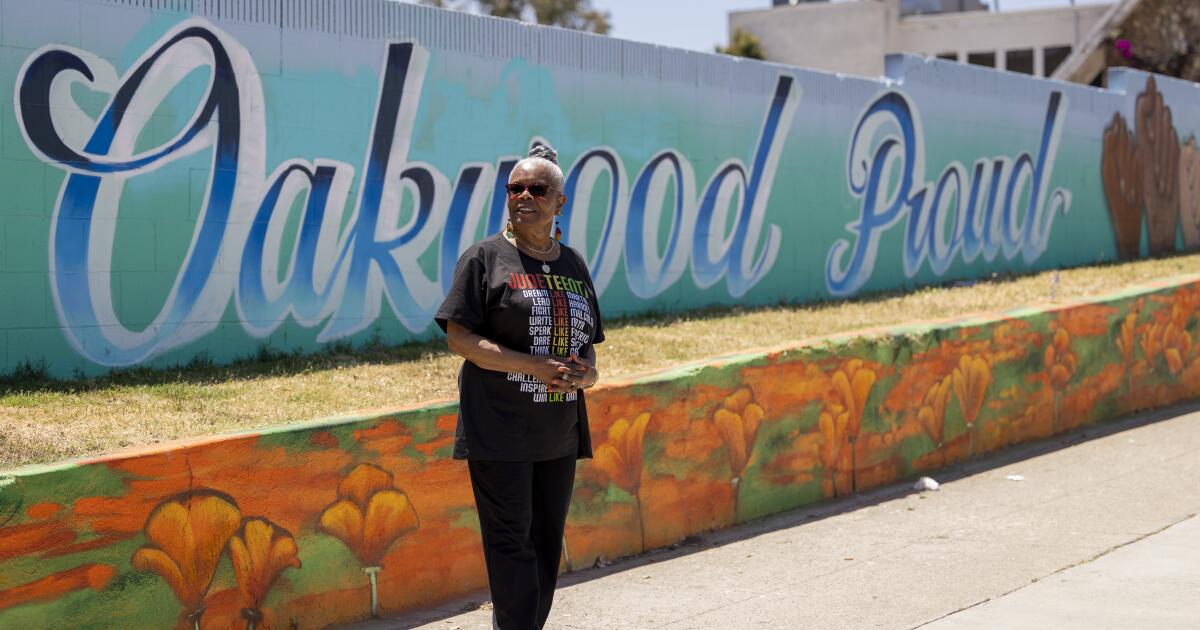Venice’s black community came together at Oakwood Park last week for an event with all the trappings of a typical Juneteenth celebration: soul music, crisp costumes, fried chicken, cornbread and bounce houses for the kids.
However, in recent years it has been celebrated under the name Juneteenth since President Biden declared the anniversary a national holiday in 2021. For more than two decades, Oakwood’s Black residents have celebrated the third Saturday in June under names including Hood Day, Neighborhood Day, Community Day and Memorial Day.
Some residents say the holiday commemorates the day black people first settled in the Oakwood neighborhood of Venice, and was first celebrated over 100 years ago. Whatever the name, it’s a time for the community to remember loved ones lost too soon and renew cherished relationships.
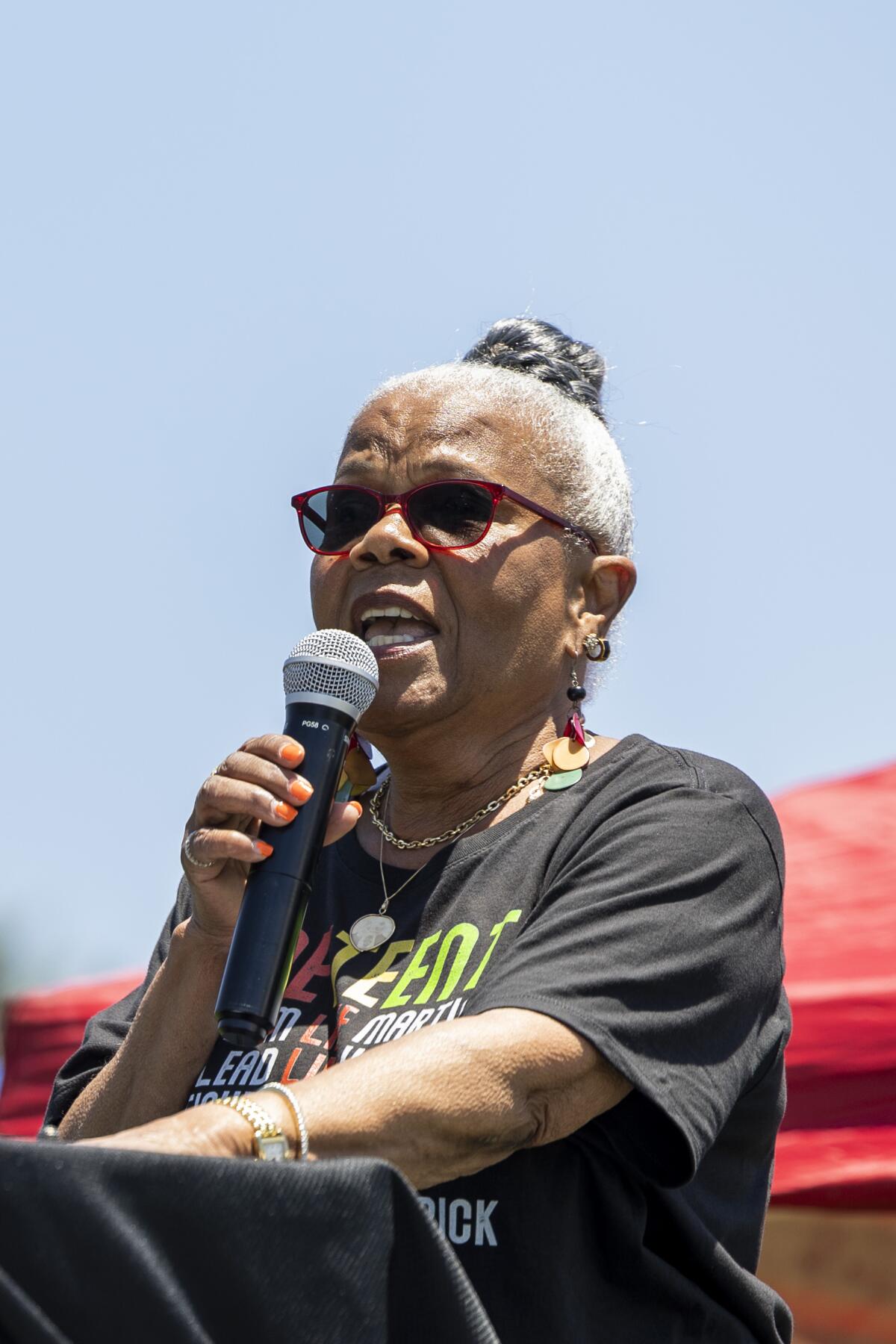
Naomi Nightingale speaks at Juneteenth celebrations in Venice.
(Zoe Cranfill/Los Angeles Times)
“These gatherings have been taking place in this park since I was a girl in the 1960s,” says Naomi Nightingale, a professor and historian from Venice.
The word that came to my mind was “homecoming.” Everyone knew each other well enough to ask each other the names of their cousins, mothers, and siblings. No one seemed to be able to finish a conversation before being interrupted by new loved ones to say hello.
But most of the people I spoke to no longer live in the area and could only point to the homes they grew up in. Nightingale estimates that only a third of attendees still have a Venice zip code, and most of them live in rented housing. Hood Day has never been about protest, but in recent years, as gentrification has pushed more Oakwood residents out of the area, the political dimension of the celebration has become harder to ignore.
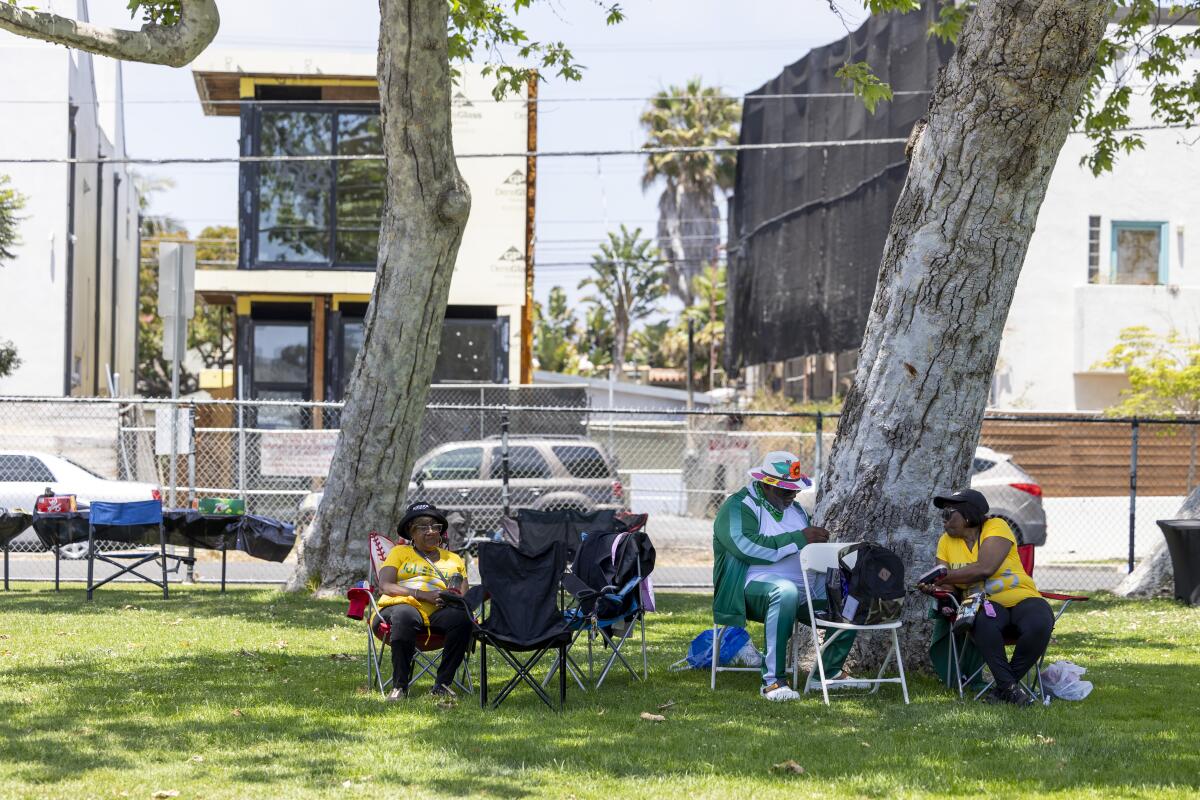
A family relaxes at a Juneteenth celebration at Oakwood in Venice as new homes are built behind them in a gentrifying neighborhood.
(Zoe Cranfill/Los Angeles Times)
“We will never stop trying to protect the sacrifices our grandparents made for this community,” said Nightingale, who said she receives at least one call a day from a real estate agent looking to buy her own home.
Nightingale said there has been “protest and resistance” to attempts to keep the community alive, and bringing Oakwood back to life each year is a way to honour the sacrifices their ancestors made to live in Venice, she said.
Gwen Moseley, 60, remembers the area as a commune where children who broke the rules would be punished by the local mothers, who all pitched in to raise the children.
“They say it takes a village, and we truly were a village,” said Moseley, who now lives in the Mid-City area.
Like most people I spoke to, she pointed to her former home, which is on the same street as the one currently listed for sale on Redfin for $5.3 million. Her father owned the family home in Venice, but after he died, her siblings inherited it and decided to sell it rather than manage it.
She has some regrets about it, she said, but at least they have Hood Day, where they can watch the babies who once bounced on their laps grow into tall college graduates, maintain old friendships and remain part of their old neighborhood.
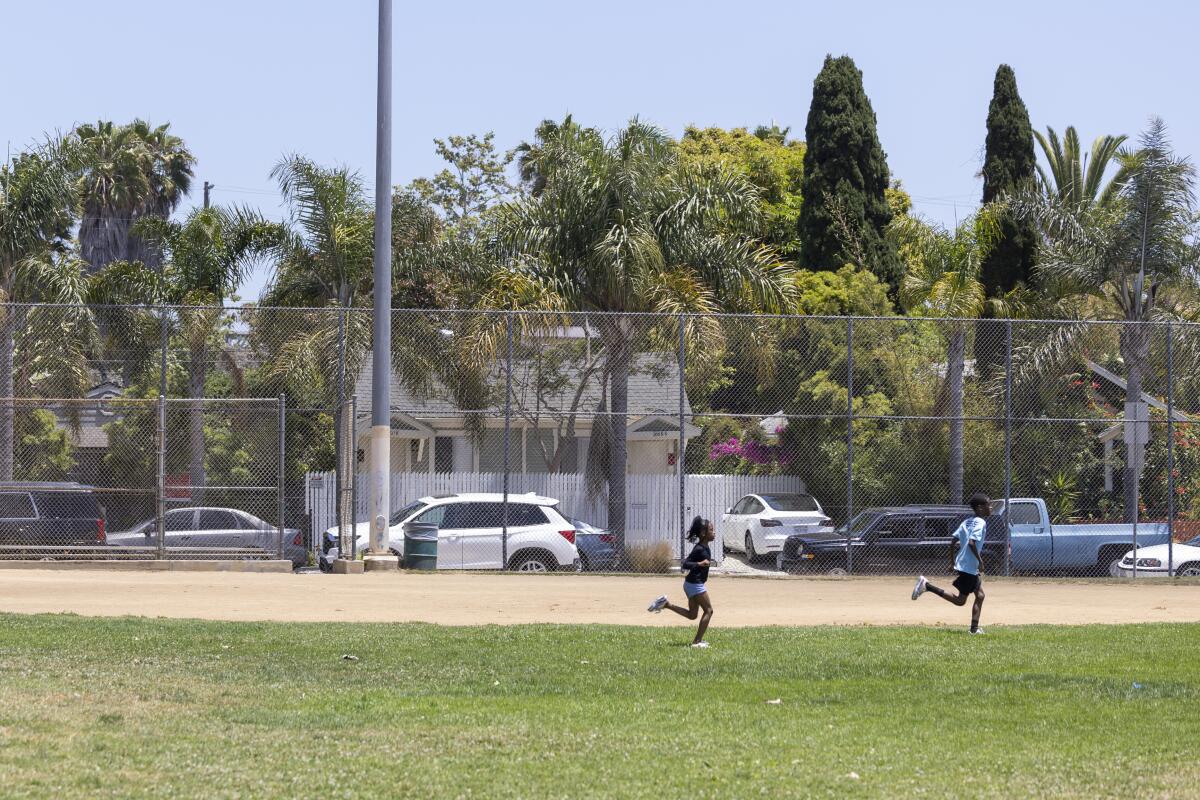
Oakwood’s Juneteenth Celebration.
(Zoe Cranfill/Los Angeles Times)
“We look forward to this day. We call it Juneteenth now, but we’ve been doing it since before Juneteenth. It’s the only day we can all be together other than at funerals,” Moseley said.
Geraldine Holloway, 67, said all of her fondest memories and loved ones are in Oakwood. She recalled the excitement of kids in her neighborhood when the first McDonald’s opened on Lincoln Boulevard. She still laughs when she remembers her mother throwing away the Big Macs she and her siblings had pooled together to buy.
She said the area really started to change about seven years ago. Her family had always lived in rentals in Venice, and she’d spent years in Palmdale and other parts of Los Angeles, but there was no place like Oakwood. She moved back to the area to be closer to her grandchildren.
“I never leave. I’ve left, but I always come back,” Holloway said.
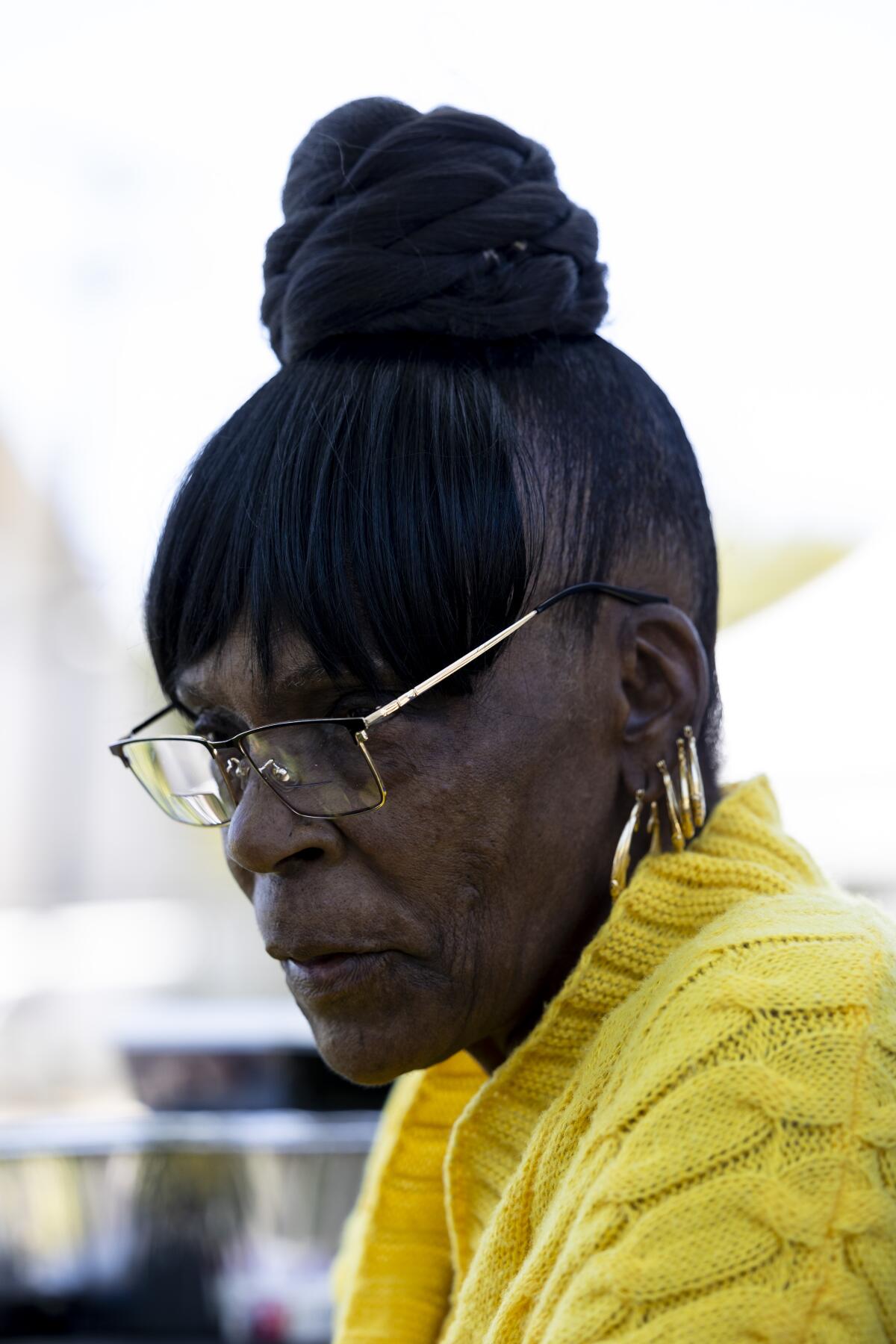
Geraldine Holloway, 67, said all of her best memories and loved ones are at Oakwood.
(Zoe Cranfill/Los Angeles Times)
“Every time someone dies, their kids sell the land, but my family is still here. There are still a lot of families in this park,” Holloway said, pointing out each family.
Clinton Noble is a case manager at the Helper Foundation, a youth violence prevention nonprofit that helped create the holiday. He said the event was born out of a desire to remember friends and family members who have died. In the past, churches, community groups and the public have funded the event. Participants decorate the park’s chain-link fence with portraits of their lost loved ones.
“We created the idea of a memorial, and whether you’ve lost someone or are facing some kind of tragedy, we all had a common goal of going out and celebrating,” Noble said.
But it would be inaccurate to describe the holiday as solemn: Hood Day is a great celebration, no matter what tragedies or regrets participants have faced.
After the speeches, Nightingale and the rest of the crowd swarmed the dance floor, dancing in unison to the steps they knew by heart. Three cars loaded with hip-hop dancers dressed as clowns appeared and broke out into krumping, a type of dance that originated in South Los Angeles. People passed plates around with portions of their favorite foods.
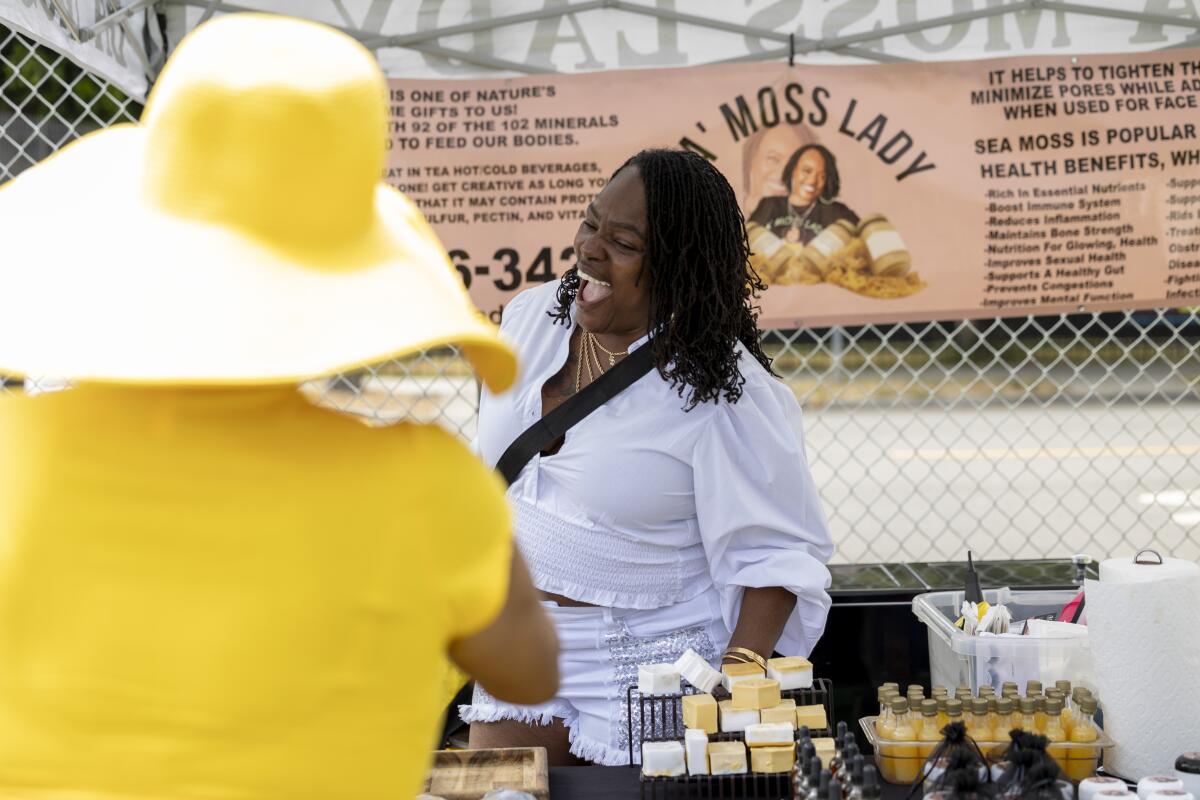
“Da Moss Lady” Gwendolyn Moseley, 60, talks with customers at her booth at Oakwood’s Juneteenth celebration.
(Zoe Cranfill/Los Angeles Times)
The day was a powerful validation of the idea that a home is more than just property, especially for people from groups historically denied homeownership through racist real estate practices such as redlining and racially restrictive deeds.
Sometimes home is just the emotions we carry around, the meals we cook, the familiar flavors.
Sometimes it’s an annual get-together, a holiday hidden within a holiday, a time to share secret intimacy with the people you grew up with, even if just for a few hours.

